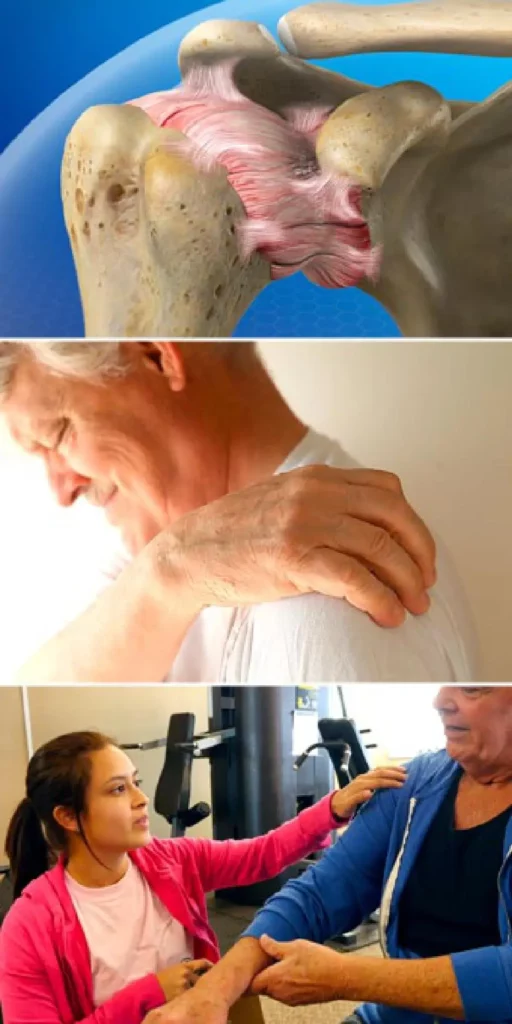Frozen Shoulder (Adhesive Capsulitis)
Overview
This condition is a loss of motion or stiffness in the shoulder, usually accompanied by pain in the joint. Frozen shoulder is most common in people between the ages of 40 and 60, but can afflict anyone regardless of gender, arm preference or occupation.
Causes
The exact cause of this condition is not fully understood. It involves swelling or contraction of the glenohumeral ligaments, which form a capsule around the shoulder joint. This condition may occur after the shoulder has been immobilized for a long period of time, and is more prevalent in those who suffer from diabetes, Parkinson’s disease, hypothyroidism, and hyperthyroidism.

Symptoms
The main symptom is limited motion or stiffness in the shoulder. Many patients also experience a dull or aching pain on the outside of the shoulder or upper arm.
Treatment
This condition commonly improves on its own, but can take up to three years for full motion to return to the shoulder. Often times, full motion of the shoulder does not return. Common treatment options include anti-inflammatory medications, stretching exercises and physical therapy. In severe cases where full motion does not return to the shoulder, surgery may be required.
